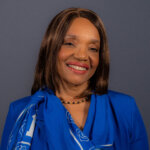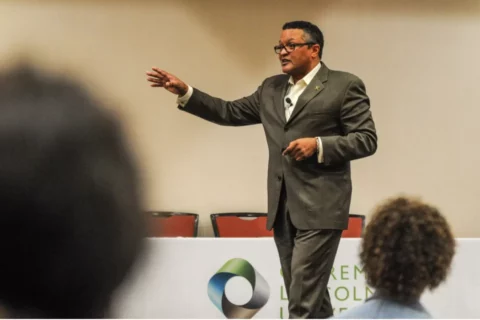This is part of WTOP’s continuing coverage of people making a difference from our community authored by Stephanie Gaines-Bryant. Read more of that coverage.
It’s not the Super Bowl or the Rose Bowl — it’s the Financial Literacy Bowl.
An Alexandria, Virginia-based group is offering students from Historically Black Colleges and Universities the chance to flex their financial literacy muscles at the Annual Financial Literacy Leadership Conference beginning Monday at the Gaylord National Harbor in Maryland.
New to this year’s conference — The Financial Literacy Bowl. Thirty-six HBCUs were given the opportunity to participate in the bowl based on what they were taught in the SFEPD Student Ambassadors Program, which trains college students in financial literacy.
“We have colleges and universities competing with each other,” President and Founder of the Society for Financial Education and Professional Development Ted Daniels said.
During the conference, finalists from Hampton University, Southern University and the Tuskegee Institute will compete in the inaugural competition on Tuesday, Oct. 24.
Daniels says they will be asked questions on how to plan a budget: “Your values will drive your budget, whether it’s shelter, education or food.”
They will also be asked about their investment decisions.
Questions like, “When you decide to make an investment, do you use a short-term approach… a long-term approach,” he says.
And questions about how to deal with credit, which plays such a major role in our lives.
“If you mismanage credit, it can mean a drainage of your financial resources,” Daniels told WTOP.
Winners of the Bowl will receive monetary gifts from $500 to $1,000.
Why the bowl?
Research shows Black college graduates owe more in student loan debt than white college grads, to the tune of about $25,000. But Daniels says he hopes to change those grim statistics by continuing to bring financial professionals, educators, researchers, students and policymakers together and addressing financial literacy, especially among students.
Daniels says the organization reached over 3,000 students in the previous year as his group tries to fill a void when it comes to how students are educated — schools teach students how to move forward in their profession, he says, but don’t always teach students how to use the financial resources generated from the degrees.
Daniels encourages people to ask: “How do you get the most use out of the available finances that you have?”
Sessions at the conference will include how to make investments to create wealth, how to manage credit, how to create a budget and even the psychological impact of money.









